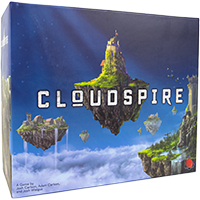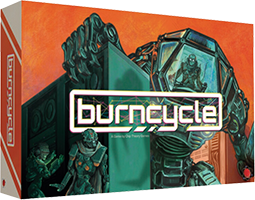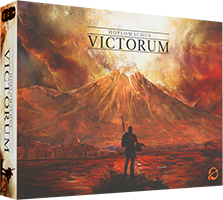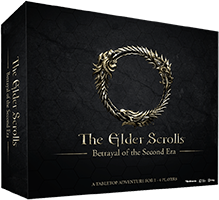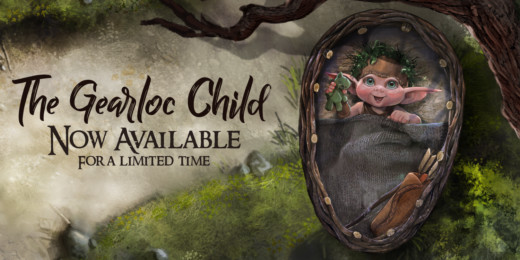Going deeper on burncycle
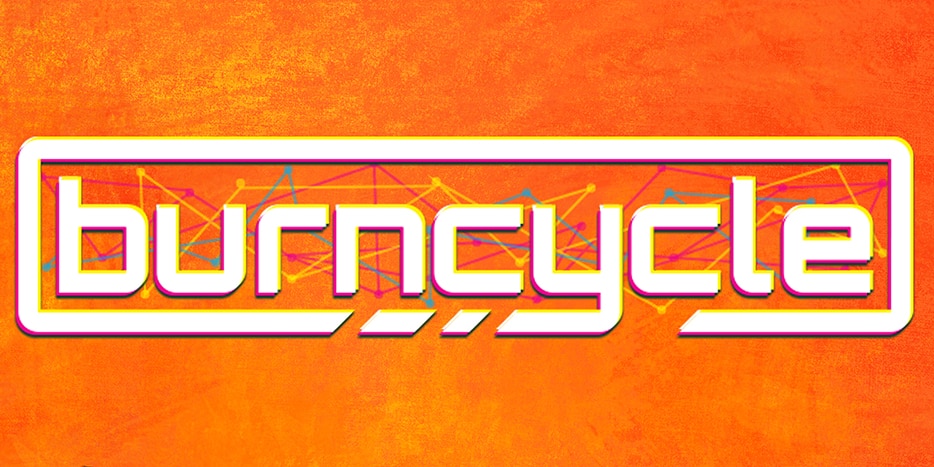
Bonjour, burncyclists!
By now, you’re no doubt aware of our new game burncycle, which is coming to Kickstarter on Nov. 10. We’re very excited about it, and we hope you are too, but just in case you wanted a few more details, we’re going to get into some of what we can say now, three months before our launch date. Please be aware that since the game is still in development, some of the finer points may change as we get closer to launch. That’s just that Chip Theory process you know so well (this time, hopefully, without European house music playing in the background).
Q: Just what kind of game is burncycle, anyway?
It’s a solo or cooperative infiltration game for one to four players. In each game, players will work to sequence chips and dice to covertly make their way through a heavily-guarded building. Meanwhile, they’ll also be fighting back against a corporate overlord-controlled hostile network trying to take their characters down and limit their effectiveness. There also may be the potential for 2 vs. 2 play, but we’re still testing that. Not all play modes work for all games!
Q: What’s the theme of the game?
It’s set in the far future of Earth, well after mankind has gone extinct… and then was resurrected by the benevolent robots it left behind. Upon receiving a second chance at civilization, however, humans messed up again, subjugating the robots to their will. Now, you’ll play as bots working together to break into corporate headquarters that serve as the humans’ centers of power, bringing them down from the inside. We’re working on a cyberpunk-adjacent, retro sci-fi-inspired aesthetic aided by our artist, Anthony LeTourneau, who is really blowing us away with his range on this project.
Q: How does the theme tie in with the gameplay?
We want the gameplay to really convey the theme. The functions of the corporations and the personalities of their villainous CEOs – right now, we’re working with four different corporations, though that number might change – will affect the layouts of the various maps and the way the network and building will fight back against the bots. At a more elemental level, the idea of coding is deeply imbedded in the world of the game, and it’s something players will be engaged with on a gameplay level as well.
Q: Why is it called burncycle?
Right now, that’s what we’re calling the chip sequencing that is in the game (though that may change). Players will be making decisions about when to cycle or burn off chips, dice, etc. On a larger level, burncycle has always been the project’s codename, and we really liked the ring of it.
Q: You mean you won’t be traveling around on extremely flammable bikes?
No, and this definitely wasn’t a fake question we made up to get a joke in.
Q: So, it’s a programming game?
Nope! However the order of your actions does affect your team’s future options, so sequencing is important. By contrast, take, for example, the (also awesome) Colt Express. In that programming game, all of your actions and most of your movement for a whole round are decided ahead of time. In burncycle, you will be playing limited action chips in a specific sequence that your other team members will have to interact with and adhere to on their turns as well. But rather than the chip sequence locking your team into a single option, it only locks the “type” of action that must be played at that moment in the sequence. This still gives every player a massive amount of agency in how they use that action type on their robot or the leader bot while still requiring players to adjust their strategies on the fly when a sequence doesn’t quite line up how they’d like.
Q: I’ve seen you working on a big prototype mat. Are these going to be static maps?
No. The mat you’ve seen us working with is actually a couple of years old, as burncycle is an idea we’ve been finessing for a while now. The corporation set-ups will be modular, with a large mat serving as the base and then individual rooms being laid out with smaller room pieces, not dissimilar from the modular layouts we use in our Cloudspire scenarios.
Q: How is this different than other Chip Theory titles?
Well, beyond the theme, which is a huge departure for us, burncycle will be our first big box game without tactical combat as its primary focus. Sure, you might need to deliver a cybernetic smackdown on a guard that noses in on your business once in a while, but getting caught is rarely the preferable option. Think of it as a heist movie: Sneak in, do the job. Ocean’s 1011 (binary joke).
From a complexity standpoint, we’re using some unique systems with the cards, networks, and character mats, combining to create a game that is less complicated to learn than Too Many Bones while still retaining that satisfying strategic crunch.
Q: I’ve heard you might use minis in this. Is this a minis game? Is Chip Theory going to become a minis company?
There are three reasons we named the company “Chip Theory Games.”
- The .com was available.
- We really like using chips in our games.
- We have a theory about whether or not Pringles are *actually* considered chips. Editor’s note: They’re *crisps,* I’m telling you! Crisps!

